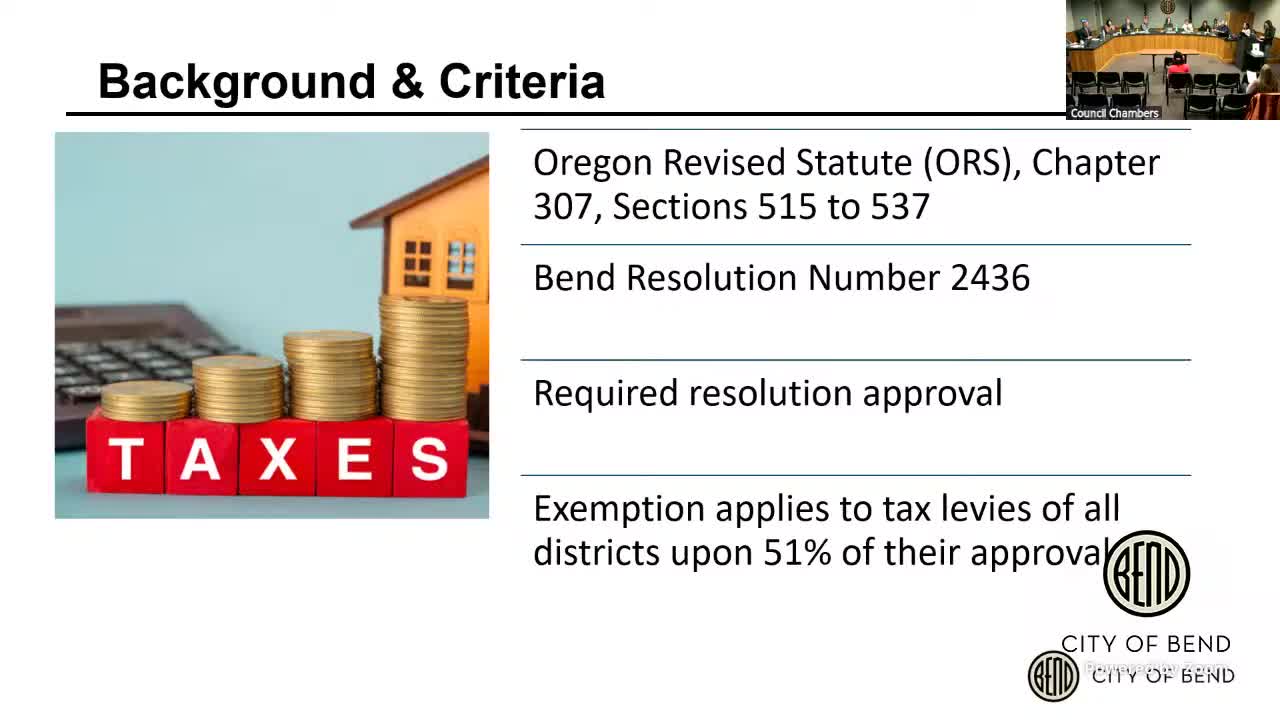Council approves 20-year property-tax exemptions for Cascade Landing and Verde Pines affordable housing
Get AI-powered insights, summaries, and transcripts
Subscribe
Summary
The council authorized two qualified low-income property-tax exemptions to support two affordable rental projects: Cascade Landing (98 units) and Verde Pines (128 units). Both will have long-term deed restrictions and participate in compliance monitoring.
The Bend City Council adopted two resolutions approving 20-year property-tax exemptions for two affordable-housing projects: Cascade Landing and Verde Pines.
Carrie Bell, the city’s affordable-housing coordinator, said the exemptions use a state-authorized program that requires units to be deed restricted to households at or below 60% of area median income (AMI), and that legislative and local approvals are required. The exemptions require participating taxing districts to join; Bell said the Bend-La Pine School District voted unanimously the night before to approve the exemptions, satisfying the majority threshold required for full exemptions.
Cascade Landing is a garden-style apartment development proposed in the Ponderosa area; Bell said all 98 units will be deed restricted at 60% AMI or below. Staff estimated the 20-year impact on all taxing districts would be just over $7 million and that the first-year impact on the city’s levies would be in the tens of thousands of dollars. A Cascade Landing representative told council the tax-abatement savings will be used to deepen affordability and to serve households at very low income levels.
Verde Pines is a 128-unit apartment project adjacent to Caldera High School; Bell said the developer plans community services on site and that all 128 units will be deed restricted at 60% AMI or below. Developer Seth O’Connell (United Housing Partners) said the exemption is an essential component of the capital stack and that the project leverages $48 million of investment; he said without the exemption the developer faced a financing gap and would not be able to close on the same terms.
Councilors voted to approve both exemptions by resolution.
